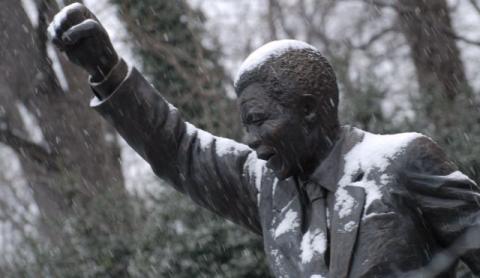Mandela's blind spot
Mandela’s reply was, as usual, polite and dignified, but was essentially evasive. He expressed thanks for the invitation, but said that it was premature to visit Israel. He did not elaborate and never visited Israel.
This episode was typical of his cool and reserved attitude towards Israel and Zionism. This reservation can be interpreted in many ways: as criticism over Israel’s collaboration with the apartheid regime or as due to his support for the Palestinian national movement. Some people suggested that it was due to the massive financial support that the African National Congress had received from Libya’s leader Muammar Gaddafi. The fact that South Africa’s Jews on the whole did not oppose the apartheid regime and were affiliated with the Revisionist wing of the Zionist movement did not make it easier for Mandela to appreciate the significance of Zionism.
There is one more explanation, which I heard from a liberal Jewish academician in Cape Town. Mandela’s movement was supported by the South African Communist party, which included a significant number of key Jewish members. Thus, most of his knowledge of Zionism was filtered through their lens. As in other countries, some of the harshest opponents of Zionism were Jewish communists, for obvious reasons. Zionism and communism were the two diametrically opposed answers to the dilemma of Jewish identity in the modern world.
With all due respect to the justified outpouring of acclamation bestowed on him now, Mandela’s blind spot should also be remembered. In this Mandela paradoxically joins another exemplary figure, Mahatma Gandhi. When the Nazis came to power, Martin Buber, who was in touch with Gandhi, tried to make him comprehend the historical context of the Zionist movement. Gandhi refused to listen and remained indifferent to the whole issue. Even Buber’s moderation, with his support for a bi-national state, could not budge him. Apparently, not everyone who strives for self-determination for his own people is ready to identify the same longing and the same right for others.
Shlomo Avineri

